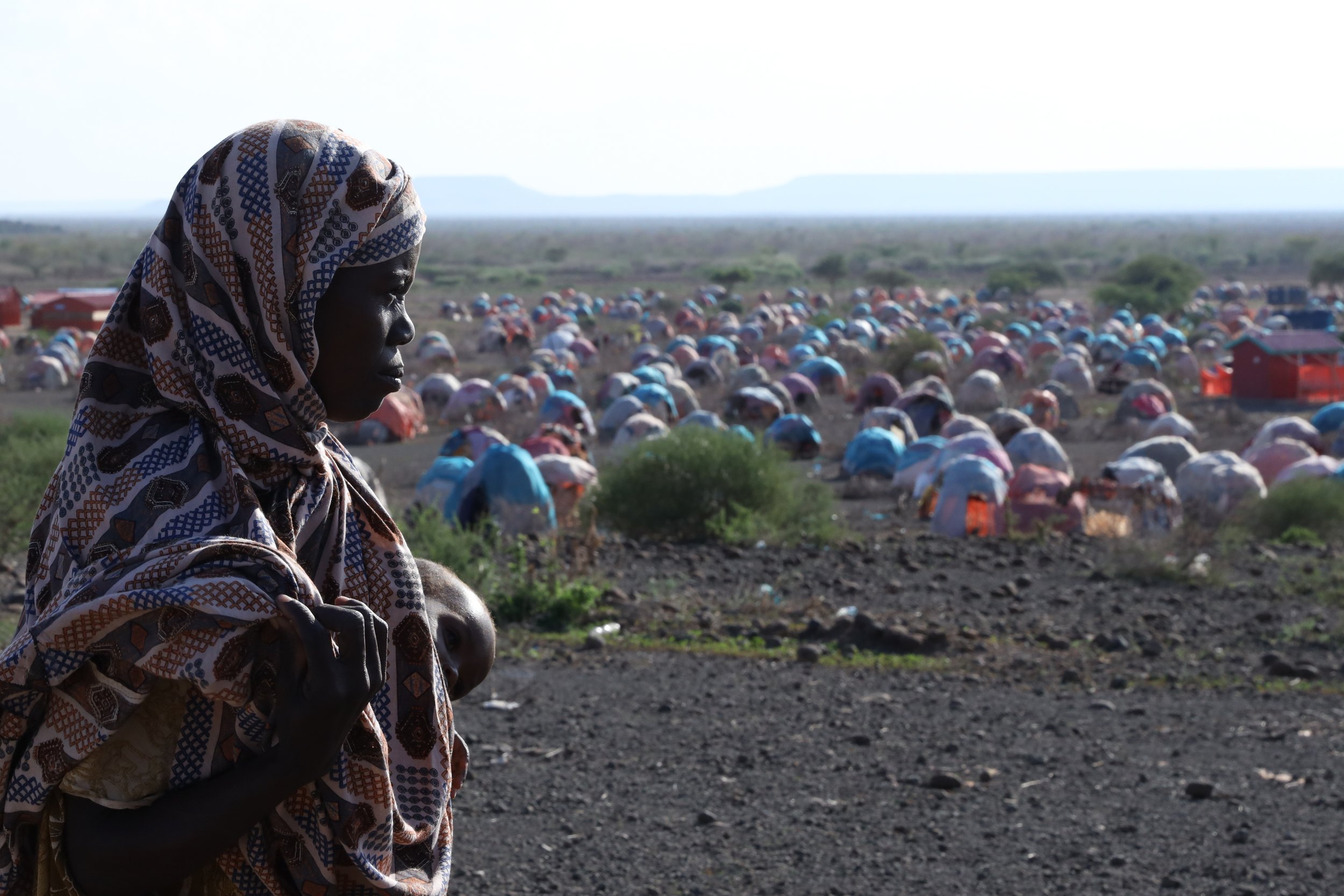CDAC Network joins call for UK Prime Minister to act on Horn of Africa hunger crisis
CDAC Network has joined forces with leading UK aid agencies and three former Secretaries of State for International Development in calling for the Prime Minister, Rishi Sunak, to act now to help prevent humanitarian catastrophe in drought-stricken East Africa.
The UK has so far allocated only £156 million this year to East Africa, less than 18% of the £861 million provided during the region’s last major hunger crisis in 2017–2018. In a letter sent on 6 December, CDAC’s Executive Director, Marian Casey-Maslen, lent her voice to the call for Rishi Sunak to step up and show leadership to prevent widespread famine.
The letter in full
To the Prime Minister, Rishi Sunak
Right now, East Africa is facing a catastrophic hunger crisis caused by one of the worst droughts in living memory. It is looking increasingly likely that a fifth consecutive rainy season has failed in the region, leaving millions of families in a desperate situation and facing starvation.
In drought-stricken Somalia, Ethiopia and Kenya, it is estimated that one person is dying every 36 seconds from hunger. More than 7 million children are acutely malnourished across the 3 countries. Mothers are burying their children and extremely vulnerable people are waking up and going to bed hungry every single day. In neighbouring South Sudan, devastating floods have also destroyed several seasons of crops and over half of the population are facing acute food insecurity. Women girls and children are being disproportionately impacted.
This emergency has been caused by a lethal cocktail of crises, which have come one on top of the other. The unprecedented droughts and floods have undoubtedly been exacerbated by climate change, a clear example of the devastating loss and damage which these communities did little to cause. While ongoing conflict in the region has led to more people being displaced, the impact of the war in Ukraine has meant crucial supplies of essentials like grain and cooking oil are not getting through. And as food prices have skyrocketed here in the UK and the world-over, millions of people in the East Africa region who were already facing extreme poverty and hunger are now being pushed over the edge.
Communities that aid agencies have worked with for decades have run out of ways to cope and been stretched to breaking point as the precious crops and livestock that so many rely upon for a living have been decimated. Although a full-scale famine is yet to be officially declared, what we are seeing on the ground is a famine in all but name. Services that treat malnutrition are struggling to cope with the numbers. Despite the rapidly mounting death toll, the international response is woefully underfunded and the UK has failed to do its bit.
As Prime Minister, you have an opportunity to help prevent a huge humanitarian catastrophe, but action is needed now. During the 2017 crisis, the UK gave £861 million to help avert famine in the region and we need to see the UK step up and show this leadership again before it’s too late.
As well as acting to save lives now, it is vital that the UK Government also acts to stop crises like this from happening again by investing in resilience building approaches to help people to break the cycle. Tackling the climate crisis must also be a top priority, even now the UK has handed over the COP Presidency.
We implore you not to stand by as so many lives hang in the balance.
Signed by:
Waseem Ahmad, CEO, Islamic Relief
Christine Allen, Director, CAFOD
Rev Celia Apeagyei-Collins, Founder of the Rehoboth Foundation
Martin Barber, OBE, former Director of the United Nations Mine Action Service (UNMAS)
Rt Hon Hilary Benn, MP
Lord Malcolm Bruce, former Chair of the International Development Select Committee
Rose Caldwell, CEO, Plan International UK
Matthew Carter, CEO, Depaul International
Marian Casey-Maslen, Executive Director, CDAC Network
Eamon Cassidy, CEO, Care International UK
John Good, CEO, Action Aid UK
Jean-Michel Grand, Director of Action Against Hunger UK
Nigel Harris, CEO, Tearfund
Danny Harvey, Executive Director, Concern Worldwide UK
Nimo Hassan, Director, Somali NGO Consortium
Gwen Hines, CEO, Save the Children UK
Rt Revd Rose Hudson-Wilkin, Bishop of Dover
Mukesh Kapila, CBE, Professor of Global Health and Humanitarian Affairs, University of Manchester
Randolph Kent, PhD, Visiting Professor, African Leadership Centre, King's College London
Laura Kyrke-Smith, Executive Director, International Rescue Committee UK
Alison Marshall, CEO, Age International
Marvin Rees, Mayor of Bristol
Mark Sheard, CEO, World Vision UK
Clare Short, former Secretary of State for International Development
Dr Hugo Slim, Senior Research Fellow, Las Casas Institute for Social Justice, University of Oxford
Rory Stewart OBE President of GiveDirectly
Danny Sriskandarajah, CEO, Oxfam GB
Sir Stephen Timms, MP
Rt Revd Ric Thorpe, Bishop of Islington
Patrick Watt, CEO, Christian Aid


